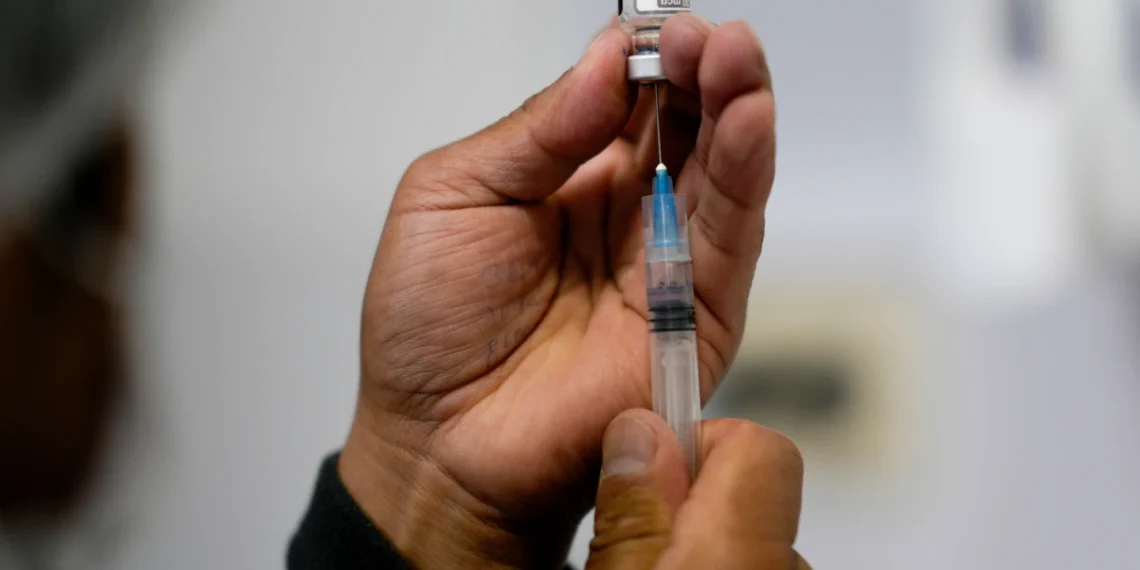COVID-19 vaccines developed by Pfizer and Moderna may do more than protect against viral infection — they could also help certain cancer patients respond more effectively to immunotherapy treatments, according to new research published in Nature.
The study, conducted by scientists at the University of Texas MD Anderson Cancer Center and the University of Florida, found that patients with advanced lung or skin cancer lived significantly longer if they received an mRNA-based COVID-19 vaccine within 100 days of starting immune checkpoint inhibitor therapy.
Researchers say the finding, though preliminary, points to a potential secondary benefit of mRNA vaccine technology: improving the body’s ability to fight tumors.
How mRNA Vaccines May Strengthen Cancer Treatment
The study’s lead author, Dr. Adam Grippin of MD Anderson, explained that the vaccines appeared to “activate immune cells throughout the body,” effectively priming them to recognize and attack cancer cells.
“The vaccine acts like a siren to activate immune cells,” Grippin said. “We’re sensitizing immune-resistant tumors to immune therapy.”
Unlike traditional vaccines that use weakened or inactivated viruses, mRNA vaccines deliver genetic instructions prompting the body’s cells to produce a harmless version of a viral protein. This process triggers a strong immune response — a mechanism scientists believe could also improve how the body targets tumor cells when combined with immunotherapy drugs.
A Promising Link Between mRNA Shots and Checkpoint Inhibitors
The team reviewed medical records from nearly 1,000 patients undergoing treatment for advanced cancers at MD Anderson. Those who had received a Pfizer or Moderna COVID-19 shot showed notably better outcomes compared to those who had not been vaccinated.
For lung cancer patients, vaccinated individuals were nearly twice as likely to survive three years after beginning treatment compared to their unvaccinated counterparts. Among melanoma patients, vaccinated individuals also showed longer survival times, though the exact median remains unclear because many were still alive when data analysis ended.
Notably, patients who received non-mRNA vaccines, such as influenza shots, did not experience similar benefits — suggesting that the mRNA component itself may play a unique role in enhancing immune response.
Scientific Reactions and Future Directions
Experts not involved in the study said the results add to growing evidence that mRNA technology could have broad applications beyond infectious diseases.
“This research offers a very good clue that maybe an off-the-shelf approach could work,” said Dr. Jeff Coller, an mRNA specialist at Johns Hopkins University. “What it shows is that mRNA medicines are continuing to surprise us in how beneficial they can be to human health.”
The MD Anderson and University of Florida team is now preparing a more extensive clinical trial to determine whether pairing mRNA vaccines with checkpoint inhibitors should become a standard treatment approach.
Checkpoint inhibitors work by disabling the “invisibility cloak” that allows some cancer cells to evade immune detection. However, not all patients respond to these drugs. Researchers hope mRNA vaccines could help stimulate immune systems in those whose cancers are resistant.
A Step Toward Future Cancer mRNA Vaccines
Scientists have long been developing personalized mRNA cancer vaccines, designed to teach the immune system to recognize the specific mutations unique to an individual’s tumor. The new findings suggest that even non-personalized mRNA vaccines, such as COVID-19 shots, may help generate broader immune activation beneficial to some cancer patients.
Grippin said his team first noticed this effect while developing tumor-targeting mRNA therapies in Florida. They observed that even vaccines without a custom-designed cancer target still appeared to boost immune activity against tumors — prompting them to investigate whether coronavirus vaccines might produce a similar outcome.
While researchers caution that the results do not apply to all cancers or all patients, the study could pave the way for new dual-use mRNA therapies that protect against infectious diseases while improving cancer outcomes.
Policy Context and Ongoing Debate
The findings come amid continued public debate over the role of mRNA vaccine technology. U.S. Health Secretary Robert F. Kennedy Jr. has expressed skepticism about the technology and recently announced a $500 million reduction in federal funding for some of its applications.
Nevertheless, researchers say the data from the Nature study reinforces the growing medical consensus that mRNA platforms may represent one of the most versatile tools in modern medicine.
As more research emerges, scientists hope to determine which cancer types and treatment combinations might benefit most from mRNA-based interventions — potentially transforming how the immune system is harnessed to fight both viruses and tumors.
This article was rewritten by JournosNews.com based on verified reporting from trusted sources. The content has been independently reviewed, fact-checked, and edited for accuracy, neutrality, tone, and global readability in accordance with Google News and AdSense standards.
All opinions, quotes, or statements from contributors, experts, or sourced organizations do not necessarily reflect the views of JournosNews.com. JournosNews.com maintains full editorial independence from any external funders, sponsors, or organizations.
Stay informed with JournosNews.com — your trusted source for verified global reporting and in-depth analysis. Follow us on Google News, BlueSky, and X for real-time updates.













